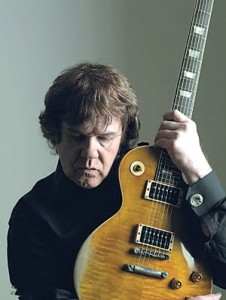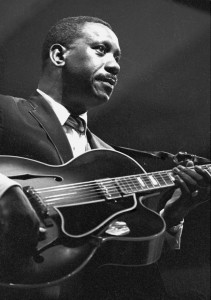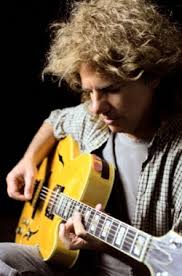What can the guitar gods teach as lesser mortal guitarists who are looking to improve on our instruments? Here we will see what they can teach us with some of the best quotes for guitar players and students.
 “How can you learn to play lots of great fast notes when you can’t make a few slow ones sound good?” – Gary Moore
“How can you learn to play lots of great fast notes when you can’t make a few slow ones sound good?” – Gary Moore
Gary Moore is spot on here. There is no sense in trying to play fast if you can’t play slowly well. When soloing its essential to know the right notes to play. Some of the best players don’t need to play a lot of notes to sound great.
Just listen to BB king and jazz trumpeter Miles Davis for examples of great soloing with minimal notes. The less is more approach often works well verses lots of rubbish throw away notes. Try and create a memorable hook or melody and build your solo off that idea.
“Before I play I think of something that will be effective but I never sit down and work it out note for note.” – Eric Clapton
Clapton here outlines his approach to improvising. He’s an adept player of the minor and major pentatonic scales and knows the licks or phrases that would work well over particular chord progressions and grooves.
Before soloing have some idea of what you want to do verses just aimlessly noodling around the scale playing licks that may not suit the song.
 “I’ve never been into playing as such. I’ve been more interested in creating sounds and something that has a real feel to it.” – Keith Richards
“I’ve never been into playing as such. I’ve been more interested in creating sounds and something that has a real feel to it.” – Keith Richards
What Keith is saying here is to play what is appropriate for the style of music or the song. The Rolling Stones have always tried different approaches to producing songs. Keith often experiments with different guitar parts and sounds when they produce songs. Check out the film “Sympathy For The Devil” shot by Jean Luc Godard. Where they try multiple styles of music for the song before they settle with the Latin rock style that we now associate with the hit tune.
When playing a ballad don’t play a shredding solo instead play something more subtle reflecting the mood of the music. As previously mentioned the less is more approach sometimes work best.
In regards to guitar tone and volume choose a sound that suits the style of music. If you’re playing a jazz gig don’t take your Marshall stack and Flying V.
Also don’t use too many effects together such as chorus and phase which can turn your guitar tone to mush. Just use of one these effects at a time. Use a clean tone when appropriate and overdrive when you need to rock out or require more sustain in a blues solo etc. If you playing rhythm guitar in band behind a singer ensure that they can be heard by keeping you volume at an appropriate level.
 “The most satisfying thing when you’re learning guitar is to be able to get a tune out of the guitar, that’s exciting.” – Dimebag darrell
“The most satisfying thing when you’re learning guitar is to be able to get a tune out of the guitar, that’s exciting.” – Dimebag darrell
I remember being a beginner guitarist and the thrill of being able to strum along to simple songs such as “All I Want Is You” by U2. For my students at all levels I make it goal to record or perform songs live at my student concerts.
For some great guitar backing tracks check out www.guitarbackingtrack.com. Download the backing track and play along taping yourself on your smartphone. It’s a great exercise in ensuring that you really learn the song and in hearing how you really sound. You can ultimately use these recordings as your show reel or resume to audition for bands and gigs etc.
“More and more as time has gone on I realise that playing is really more about listening than it is about playing.” – Pat Metheny
Listening is extremely important in a band to ensure that you’re connecting and grooving with your band mates. Everyone should be listening to the drummer to keep in time and playing at an appropriate level so you can hear each other. Nothing is worse in a band than dealing with volume wars where everyone is trying to be louder than everyone else. It’s a classic sign that no one is listening to each other but only to themselves. If you turn down a bit it can help to save your hearing and the band will also sound so much better.
In improvising styles such as blues or jazz for the band to work well it’s essential that you listen to each other to react with what the other band members are playing and to create a musical conversation.
 “Regardless of what you play the biggest thing is keeping the feel going.” – Was Montgomery
“Regardless of what you play the biggest thing is keeping the feel going.” – Was Montgomery
If you’re improvising and find yourself getting lost or running out of ideas it’s essential to keep the groove going. Even if you play some wrong notes most people won’t notice as long as it’s in time. However if you lose the beat or feel people will notice that you have made a mistake.
Here’s a great example of this idea from bass virtuoso Victor Wooten. In the video he plays some very wrong out of tune notes but it sounds ok because he keeps the feel of the groove going in his solo.
So take these gifts of wisdom from the guitar gods and apply them to your own guitar playing whether you’re practicing at home, jamming, rehearsing, recording or playing live in front an audience.


